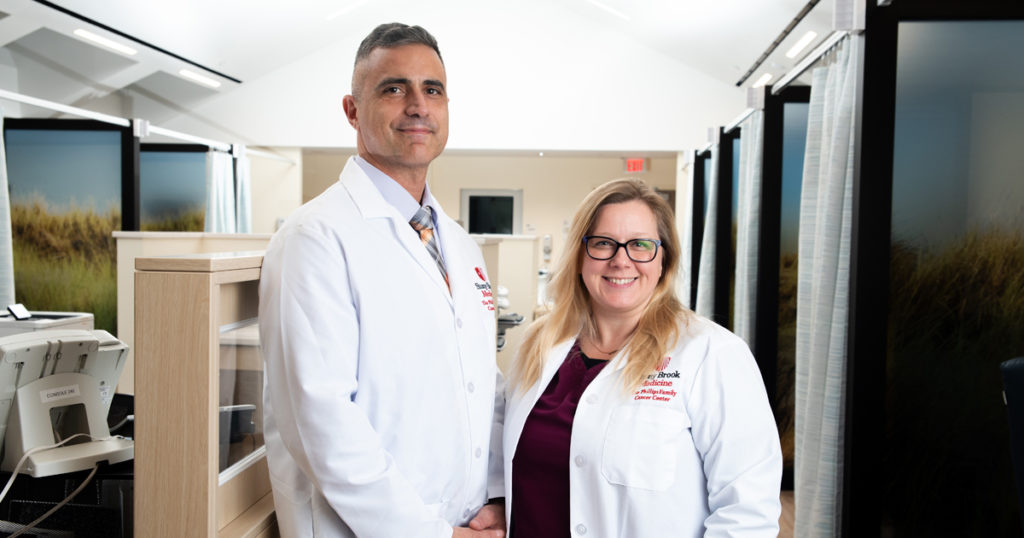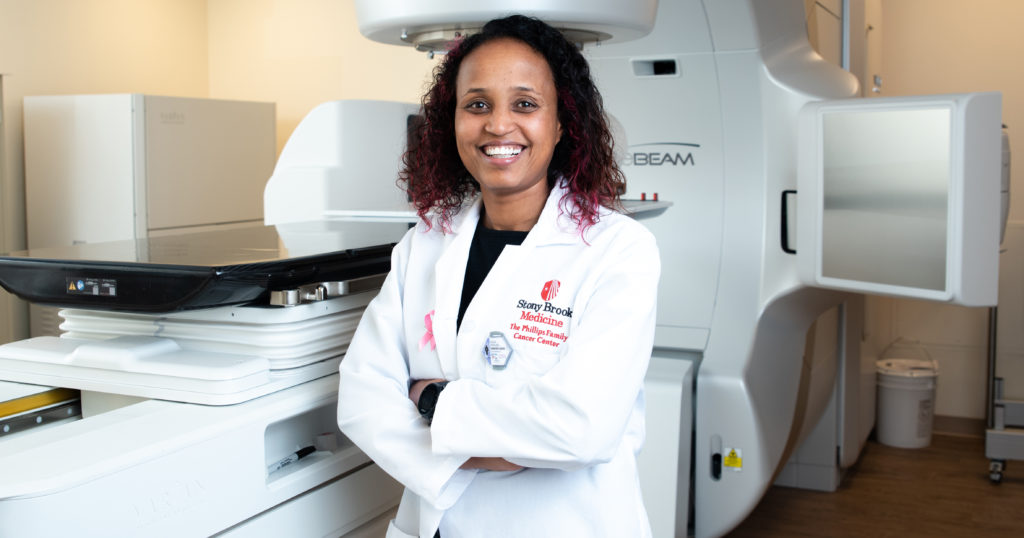Tackling wellness in an integrated way at The Phillips Family Cancer Center

The Phillips Family Cancer Center in Southampton, poised to be the premier cancer center in the nation, is fusing health and wellness to give patients, their families and caregivers the support and relief they need.
Jessica Swiatocha, manager of wellness and cardiopulmonary rehabilitation and cardiology NP services at Stony Brook Southampton Hospital, heads the center’s wellness program, which in September unveiled a rolling year-round schedule of no-cost programs, classes, workshops, support groups and services specifically curated for men and women diagnosed with cancer.
The program is produced and presented by the hospital’s Wellness Institute and embraces an array of healing modalities, offered at various East End locations.
Survivors in remission, fighters in treatment and the caregivers of those individuals — whether receiving treatment at the facility or not — are welcome to participate in the wealth of offerings, Ms. Swiatocha explained.
“We’ve been doing massages for everybody receiving radiation and now for everybody receiving chemotherapy and infusions,” she said. “We have a boxing class that’s actually taking place in Hampton Bays, but it’s through this program here. We also have a boxing class that we did out in Bridgehampton for women’s cancers.”
In December, the wellness program included meditation and yoga; a fitness class designed to improve flexibility, stamina and energy; a “Strength Through Song” class led by teaching artists and an award-winning vocalist; and a healing class that incorporates the philosophies of meditation, massage, reiki and sound bowl healing therapy, among others.
“What we’ve tried to focus on with wellness is a lot of exercise and making people feel strong again, or regaining some of their strength and, hopefully, some of their independence through exercise,” Ms. Swiatocha said.

Classes, she explained, are led by skilled professionals with expertise in cancer treatment, epidemiology and diagnosis, and they accommodate patients based on their individual abilities and limitations.
“We’ve found that there’s an interest, especially with people in the survivor stage, who want to have that bond with other people who have been through a similar event,” Ms. Swiatocha said. “And that they have this bond, really, for life.”
The facility, overall, is advancing medically with more than 70 patients to date.
Dr. Samuel Ryu, deputy director of clinical affairs at the SBU Cancer Center and professor and chair of the department of radiation oncology, said the chemotherapy department opened in December and spoke at length about future plans, including those pertaining to specialized clinics at the facility. The gynecology oncology clinic opened this fall, and he hopes doctors will be able to catch ovarian cancers sooner because of it. He is in talks with administrators about a lung cancer screening clinic, a prostate cancer options clinic and, potentially, a head and neck cancer clinic.
Dr. Ryu’s approach, a holistic one, gives weight to the importance of social work and care groups, focusing on total care that isn’t exclusive to the medical staff. He expressed great openness to clinical trials and ancillary programs surrounding wellness, symptom management, diet and, potentially down the road, psychiatry.
“We are already in the process of registering this site to the National Cancer Institute [for] clinical trials,” he said.
The top cancers Dr. Ryu sees on the East End are breast, prostate and lung. Colon cancers are also common, and sometimes difficult to detect early, he said.

Pushing for clinical trials is of paramount importance, said Dr. Margarita Yarovikova, medical director of the center and clinical assistant professor in the department of hematology/medical oncology at SBU School of Medicine.
Kevin Unruh, vice president of imaging and cancer services at Stony Brook Southampton Hospital, oversees all 11 sectors of the center. He explained the extent to which the center has made safety, protocol, convenience and aesthetics top priority. From large windows accepting natural light to machines on wheels that prevent patients from feeling unheard or ignored, he said they “wanted to design a center that is patient-centric.”
The state-of-the-art pharmacy, he noted, was strategically created to ensure zero chance of contamination and greater oversight.
The wellness program will incorporate a tai chi class designed to encourage slow, controlled movements, breathing and balance. In January, a healing circle was introduced, combining massage with acupressure, as will an acupuncture circle.
“Acupuncture in an individual setting is beneficial,” Ms. Swiatocha explained, “but in a group setting, there’s been research to show that it’s actually more healing.”






